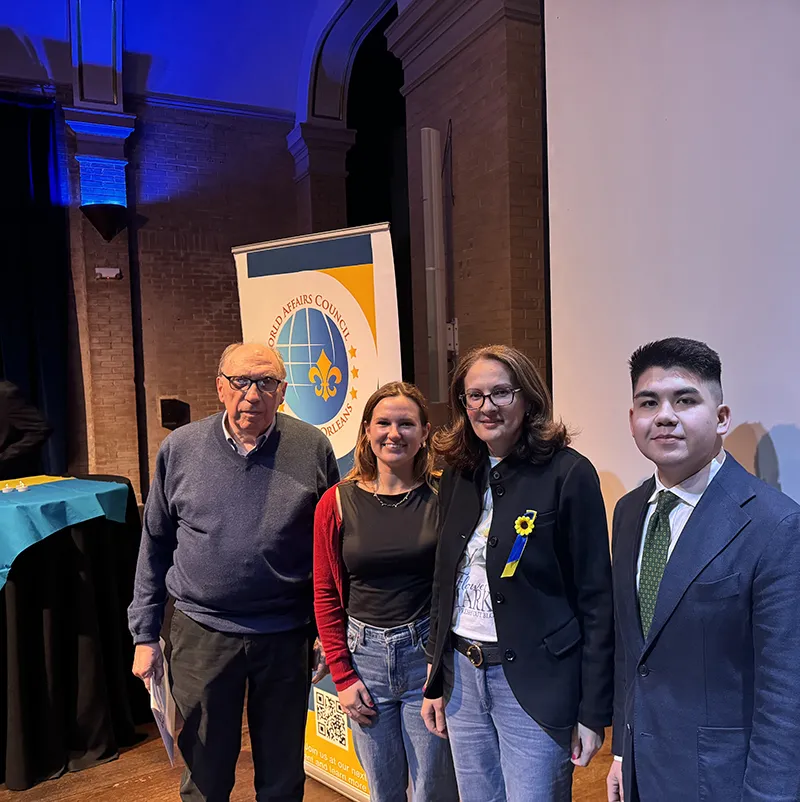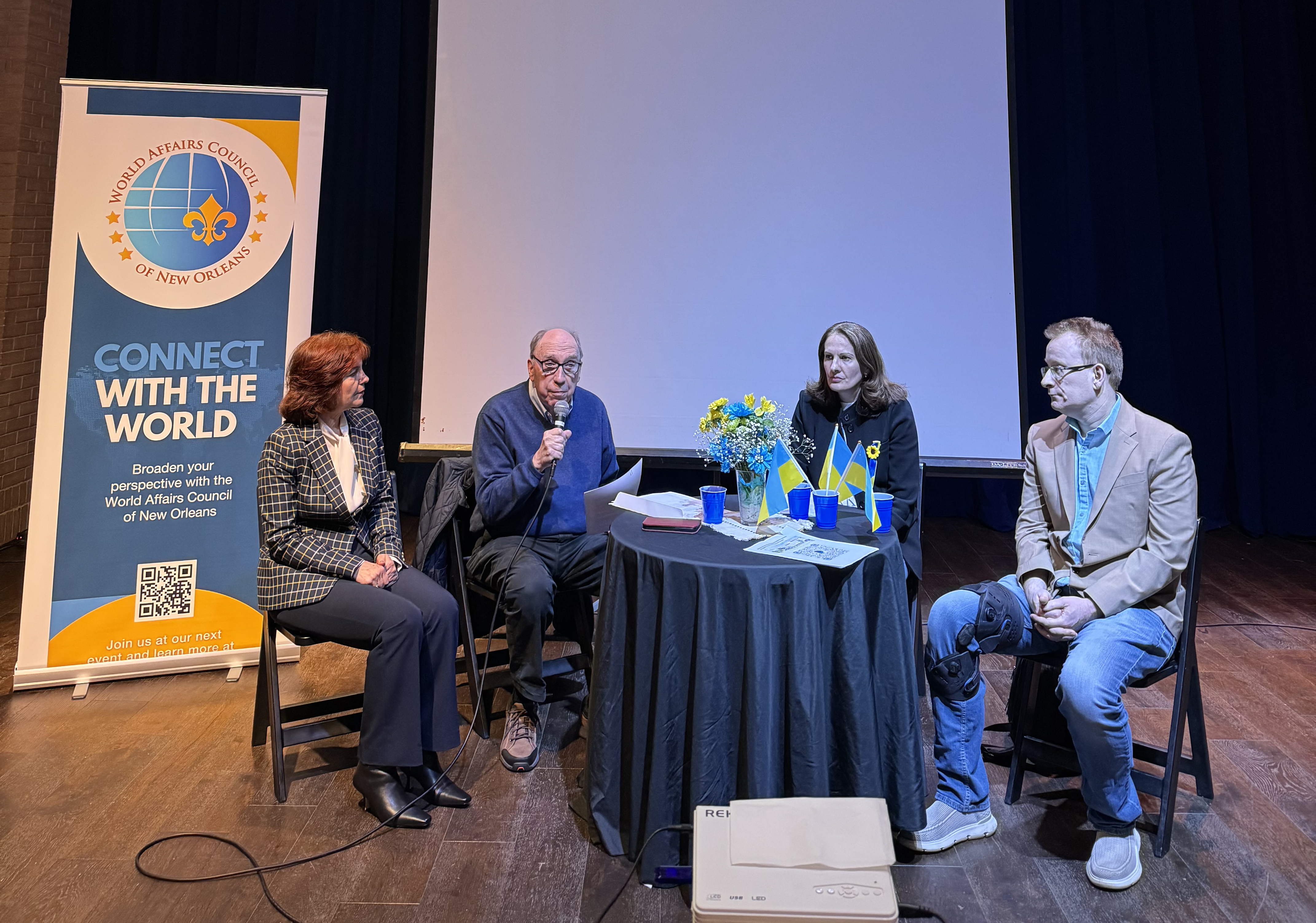
Sam Tarpley is a Master's student in the Department of English. He is a WACNO intern and an Andrew W. Mellon Fellow in Community-Engaged Scholarship. His work in relaunching WACNO’s Academic World Quest motivated him to study abroad in Latvia during his winter break in 2023-24. Upon returning, he applied for and received a Boren Fellowship. This allowed him to spend six months in Riga, Latvia, studying Russian and Information Security and Conflict Resolution. Recently, Sam has been named a semi-finalist for the Fulbright ETA program in Kazakhstan. At WACNO, Sam works to bring accessible and inviting international education to the Greater New Orleans area.
Time has a particular way of passing us by when we have the fortune to return to the places we call home. And yet, so much can change when the ability to return home is taken away. For some, this is not only a reality, but a lived experience permeated through crisis, uncertainty, and war. On the third anniversary of Russia’s full-scale invasion of Ukraine, families and countless lives are continually being fractured between borders — and despite these challenges, hope persists. I’m proud to see my Tulane and New Orleans communities answering the call, and with the World Affairs Council of New Orleans (WACNO), the impact of those experiences is coming to life through the power of spoken word.
An internationally minded organization, WACNO is dedicated to bolstering awareness of global issues in the greater New Orleans area, and it is the great diversity of our port city that allows for this communication across cultures. Since the onset of the war in Ukraine, WACNO has advocated for all those who have been displaced, offering not only a platform for experts to sustain public discourse, but a place for the Ukrainian population in New Orleans to foster solidarity — all the while portraying how even the most stringent of challenges may be overcome through community.
As an Andrew Mellon Fellow in Community-Engaged scholarship, I discovered the breadth of international outreach possible in our city, first as a student of Russian language at Tulane, and later as a contributing member of an organization that continues to effect change. Partnering with WACNO for the Mellon Fellowship, I have been able to contribute to causes that exist not only locally, but globally. Broadening my horizons in this way, my service with WACNO has ranged from tutoring immigrants to sparking social change through art — and I’m eager to see how this journey will continue to take shape.
Set against the reverence of the Marigny Theater, WACNO cultivated a new sort of conversation beyond collectivity and into history. At a panel discussion on February 24, in partnership with the Louisiana Endowment for the Humanities, a moving work-in-progress documentary was unveiled — showcasing the oral histories of Ukrainian refugees now residing in the state we call home. In the coming weeks, this collection of lives and voices will become a permanent part of the Williams Center for Oral History at LSU, standing as a testament to the history being made in front of us all.
Alongside WACNO President, Dr. Alla Rosca, I took part in these interviews, exemplifying the interconnectedness not merely between university settings, but in the very city of New Orleans. Witnessing these candid accounts of adversity and real hardship marked a pivotal juncture in my understanding of identity juxtaposed by language — Ukrainian, Russian, and English. This was the very concept School of Liberal Arts Professor Lidia Zhigunova made critical in each of her classes at Tulane. As a panelist and member of WACNO herself, she emphasized how matters of imperialism across her native North Caucasus region, now a part of Russia, have intruded upon the preservation of culture and belonging itself. As she placed this divide into the context of today, we were all reminded of how the saliency of identity can be influenced by the language we speak and the places where we feel safe. In the North Caucasus as in Ukraine, these matters continue to arise — and it’s why reclaiming home through these conversations will keep us all moving toward a future worth hoping for.

School of Liberal Arts Professors Sam Ramer (speaking) and Lydia Zhigunova (R-Center) participate in WACNO's panel discussion at the Marigny Opera House.

